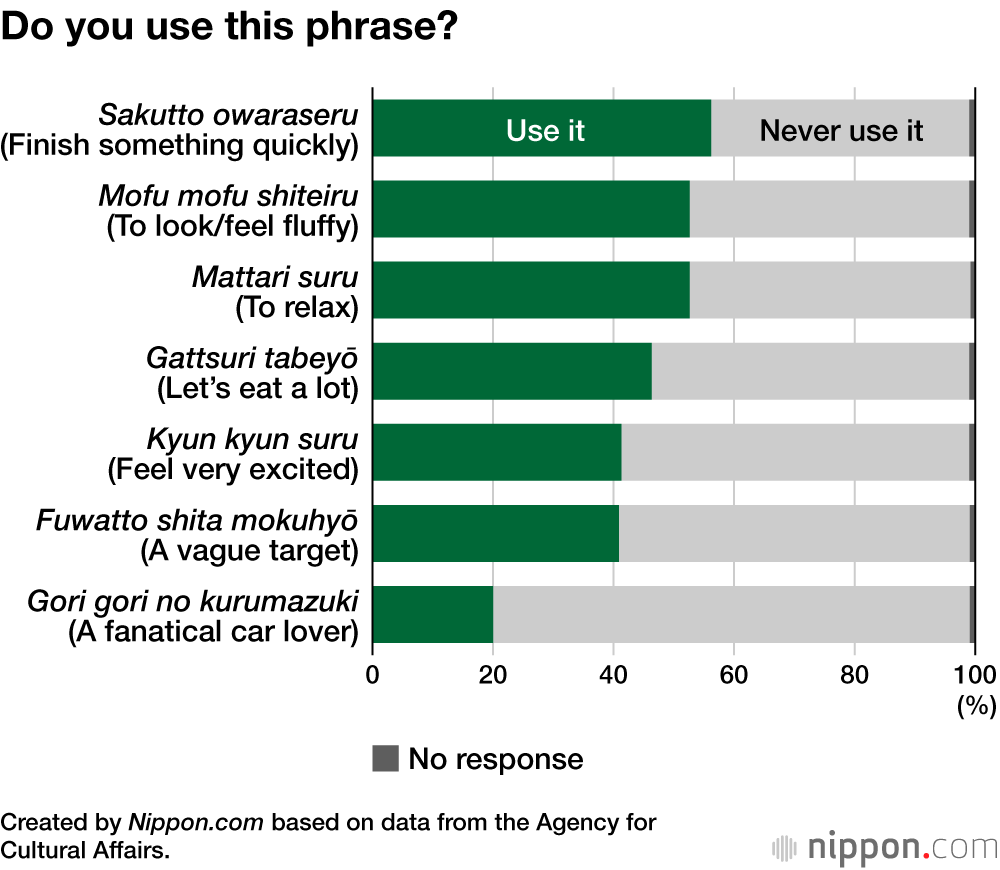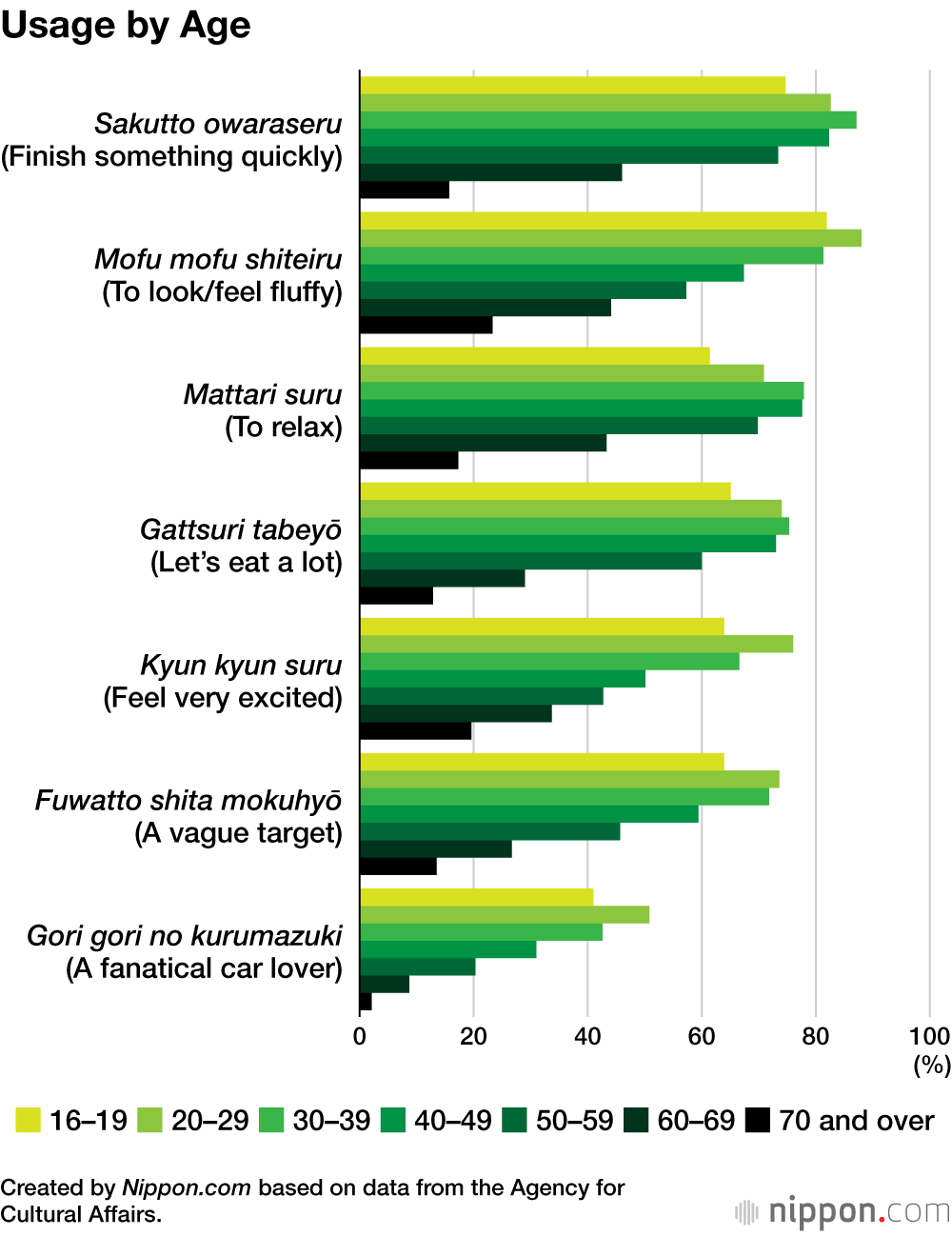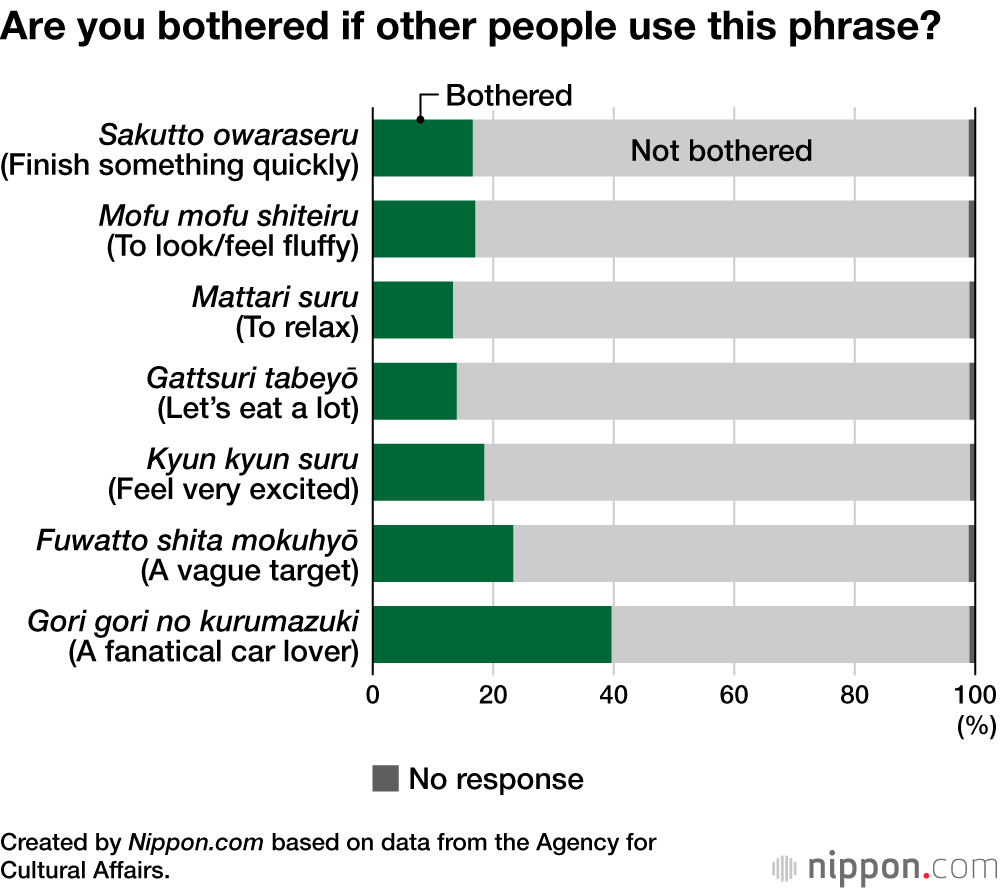
New Words for Old: Survey Tracks Japanese Language Trends
Culture Language- English
- 日本語
- 简体字
- 繁體字
- Français
- Español
- العربية
- Русский
Japan’s Agency for Cultural Affairs has published the results of its latest survey of what the country’s population thinks about the Japanese language. One section of the survey focused on attitudes to new onomatopoeic words, asking respondents about the following seven examples.
- Sakutto, used to describe finishing something “quickly.”
- Mofu mofu, for “fluffy” animals, etc.
- Mattari, meaning to “chill” or “relax.”
- Gattsuri, which can mean either “thoroughly” or “a lot.” Often used when talking about eating.
- Kyun kyun, describing being “so excited that it is hard to breathe.”
- Fuwatto, for something “vague” or “ambiguous.”
- Gori gori, to mean “fanatical.”
More than half of respondents said that they used sakutto, mofu mofu, and mattari, whereas just 20% said that they used gori gori.
Respondents who were 50 years old and younger were more likely to use the phrases, but even among those 60 and over, 40% used sakutto, mofu mofu, and mattari.
Gori gori was most commonly used by respondents in their twenties, with more than half saying they did so. However, usage dropped to 40% among those in their thirties and 30% among those in their forties, suggesting that the word has yet to gain a firm foothold.
Over 80% of respondents said that they were not bothered by others using the words sakutto, mofu mofu, mattari, gattsuri, and kyun kyun, suggesting that these words have gained acceptance among Japanese speakers.
The Agency for Cultural Affairs has conducted its survey on attitudes to and understanding of the Japanese language since 1995. For its fiscal 2023 survey, it mailed questionnaires to 6,000 people aged 16 and older and based its results on the answers of the 3,559 people who responded.
(Translated from Japanese. Banner photo © Pixta.)



